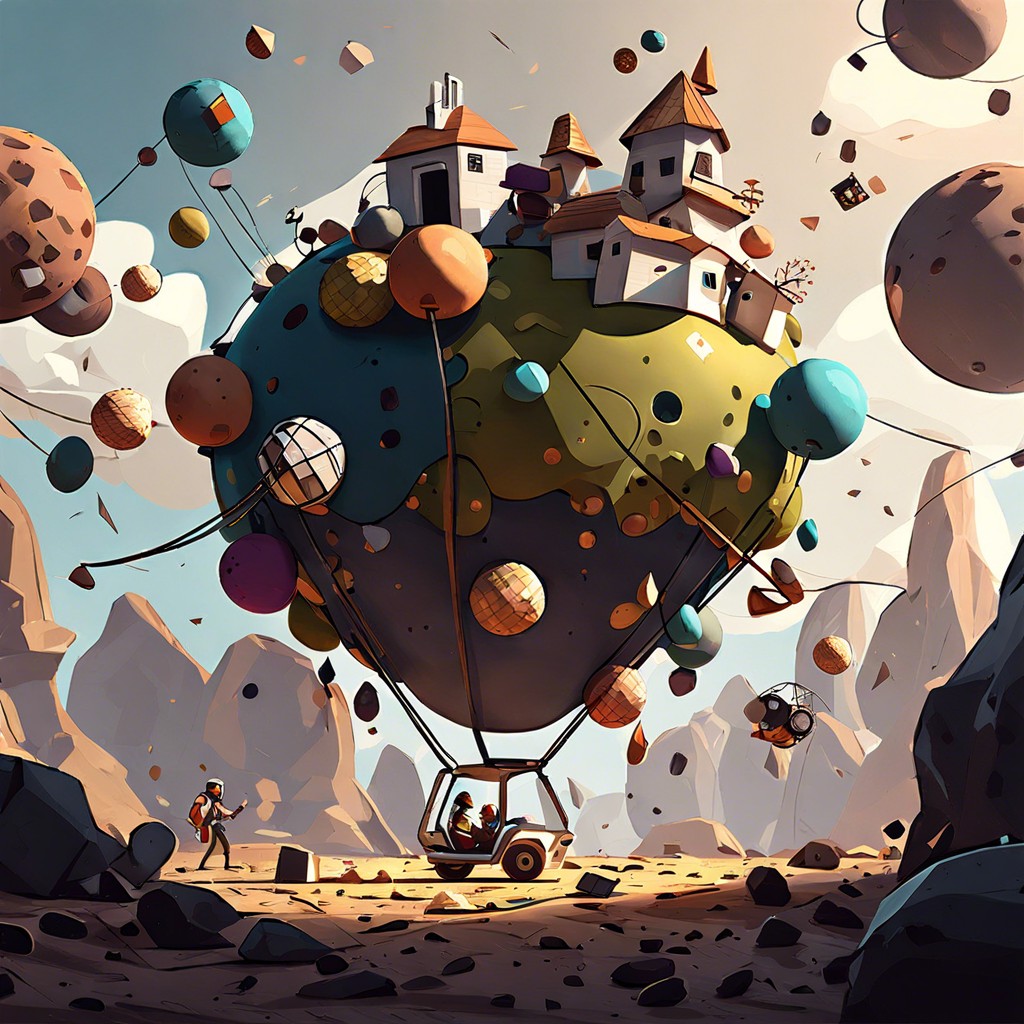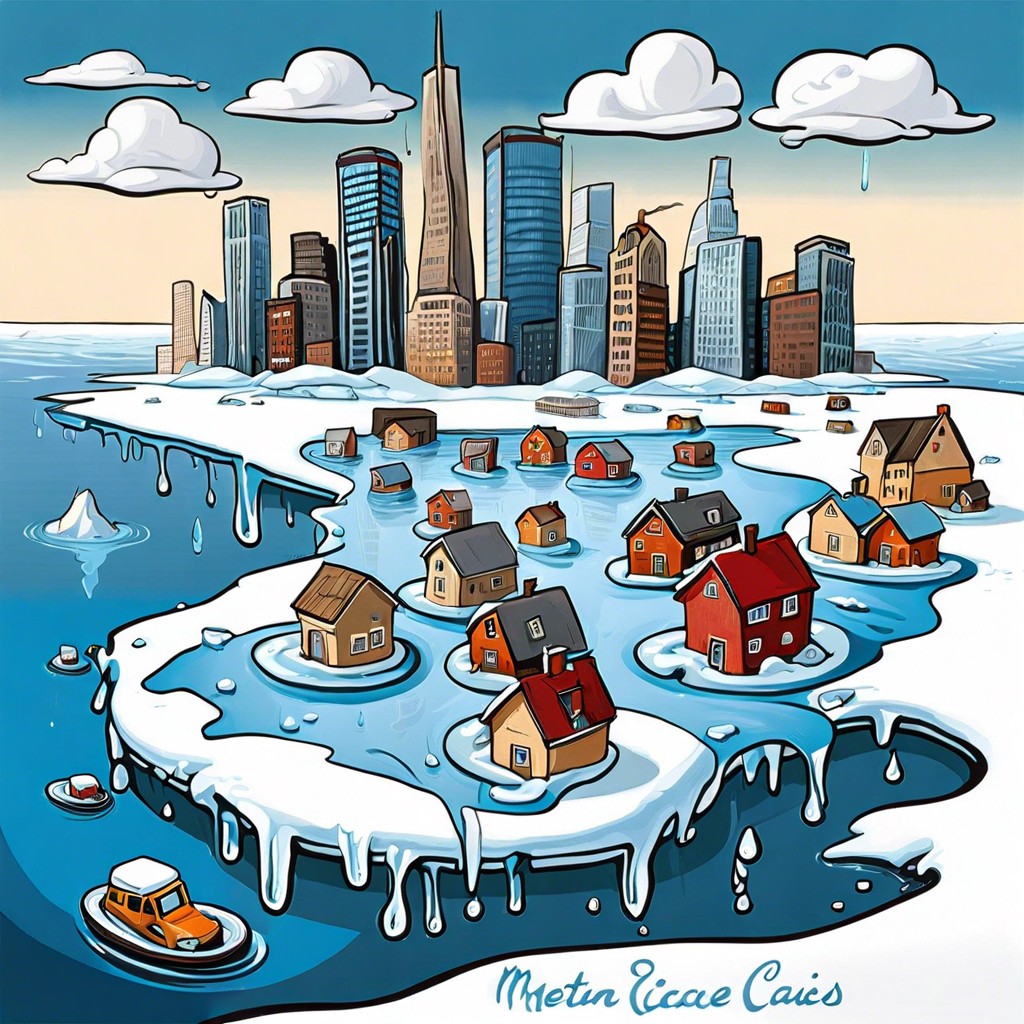Learn what might happen if gravity had never existed and how it would reshape life, the universe, and everything.
Imagine a world where gravity decided to take a permanent vacation, leaving us all to float aimlessly like balloons in the wind. Sounds fun? Think again. From the pandemonium in our daily lives to a complete rewrite of science and tech, the ramifications would be both mind-boggling and downright chaotic. How would Earth’s environment morph? What bizarre twists would human health face? And let’s not forget the hilarious impact on arts and culture. Buckle up—this gravity-defying adventure is going to turn your perception of reality on its head.
Key takeaways:
- Day-to-day chaos without gravity in tasks like eating and cleaning.
- Science and tech would be transformed with space travel a breeze.
- Earth’s environment would see floating forests, erratic weather, and confused ecosystems.
- Human health would suffer with weak muscles, bones, and disrupted bodily functions.
- Arts and culture would shift dramatically with floating sculptures and acrobatic concerts.
The Birth of Chaos: Day-to-Day Life Without Gravity

Imagine pouring a cup of coffee, only to see the liquid hover mid-air like a caffeinated nebula. Eating breakfast would turn into a bizarre food-chase scenario, with toast and bacon slices floating around the room. Your commute? Picture cars and buses playing an endless, directionless game of bumper cars in the sky.
Regular tasks like cleaning would be a Herculean task. Dust bunnies would float ominously, turning a tidy house into a space-age disaster zone. Toilets and showers? Let’s just say, the cleanup afterward would be a nightmare.
Sports would turn into surreal spectacles. Basketball would become a 3D aerial chess game, while soccer would be a nightmare of endlessly drifting balls and players trying to “swim” through the air.
Houseplants would rebel, roots escaping their pots like truant schoolkids. And don’t even get started on trying to use anything sharp—scissors and knives floating around would be an omnipresent hazard. Day-to-day routines would be an unending carnival of chaos, equal parts fascinating and frustrating.
Science and Technology: What Would Exist Without Gravity?
Imagine a world where apples never hit Newton on the head. For starters, space travel wouldn’t just be a dream but a necessity. Without gravity, every launch is a breeze without the worry of gravitational pull. On the flip side, constructing buildings would be a cosmic nightmare. Architects would endlessly chase their floating blueprints while trying to nail down, well, nothing.
Forget the concept of water flowing. Plumbing systems would need the wizardry of Harry Potter to work. Think about your morning coffee, floating in globs around your kitchen, as you desperately try to corral it with a spoon. Spaghetti night? A swirling, saucy mess.
Scientific experiments would spaz out. All those chemical reactions we rely on would need a serious rethink. But, hey, magnetic levitation would be a cinch, making hoverboards and flying cars an everyday commute. Just don’t expect them to park neatly.
Life in this gravity-free wonderland? Mind-blowingly different, and quite hard to hold everything together.
Earth’s Environment and Ecosystem Changes
Imagine forests with trees stretching endlessly into the sky, their roots no longer anchored to the ground. Aquatic life would be an ethereal ballet, with fish forever in mid-swim. Air currents would whirl in madness, turning weather into an unpredictable game of hot potato. Rivers and lakes, sans gravitational pull, would no longer sit still, transforming into free-floating blobs. Soil would scatter into dust clouds, leaving plants in a perpetual state of confusion.
Bees? They’d have to navigate in three hundred and sixty degrees, making pollination a messy affair. Birds would become skilled acrobats, but grounded animals might have to kiss grazing goodbye. Vegetation would float aimlessly, turning the Earth’s surface into a botanical soup.
As for the oceans? They’d lift off and leave us high and dry—literally. Ecosystems would be out of sync, leading to utter pandemonium in food chains. And let’s not forget, humans’ role in this topsy-turvy world would be even more baffling.
Implications for Human Physiology and Health
Imagine lifting weights at the gym and never putting them down. That’s life without gravity for your muscles. They’d become lazy. Your bones? Not much different. They’d weaken too, because they wouldn’t need to support your body’s weight.
Your heart would have a harder job—pumping blood becomes a wild rogue mission when everything’s constantly floating. Say goodbye to normal blood pressure and hello to perpetual dizziness.
Digestive systems would be confused too. Ever tried eating cereal in space? Milk particles everywhere. Nutrient absorption would be all over the place, quite literally.
Immune systems might go on vacation. With fewer physical stresses, your body could forget how to fight off infections.
Sleep? Expect a whole new level of discomfort. Finding a comfy position while bobbing around like a balloon sounds fun until it’s bedtime. Floating doesn’t really spell “restful slumber.”
Lacking gravity, childbirth could become a horror show. Those natural processes rely on it—a laborious gravity dance, if you will.
Impact On Arts and Cultural Evolution
Picture a world where ballet dancers just float mid-air, endlessly pirouetting. A surreal painting, perhaps, but would it inspire such awe if everything behaved like that? With no gravity, our artistic expressions would shift dramatically. Sculptures? Say goodbye to pieces that triumphantly stand against the pull of Earth. Instead, we might find ourselves creating intricate, 3D installations that float around our rooms like ghostly remnants of creativity.
In the world of music, instruments would need a redesign. Imagine playing a violin where the bow drifts away. Maybe musicians would develop new instruments—gravity-defying sound waves bouncing through the air. Concerts would become acrobatic displays, with performers soaring through auditoriums.
Literary works would take on new dimensions. Stories would weave in the physical oddities of a gravity-free world, creating genres full of floating cities and unchained adventures. Theater productions would be a real spectacle, with actors suspended mid-air, bringing an entirely new meaning to the concept of ‘standing ovation’.
Cultural dances, traditionally grounded in, well, the ground, would echo across the skies. Entire festivals would float above our heads, lanterns drifting away perhaps never to be seen again. Art would be less about fighting gravity and more about embracing the ethereal, the unmanifested beauty of a floating world.
Although we cherish how gravity binds us to creativity, imagining its absence paints a bizarrely intriguing tapestry of what our artistic and cultural lives could become.




